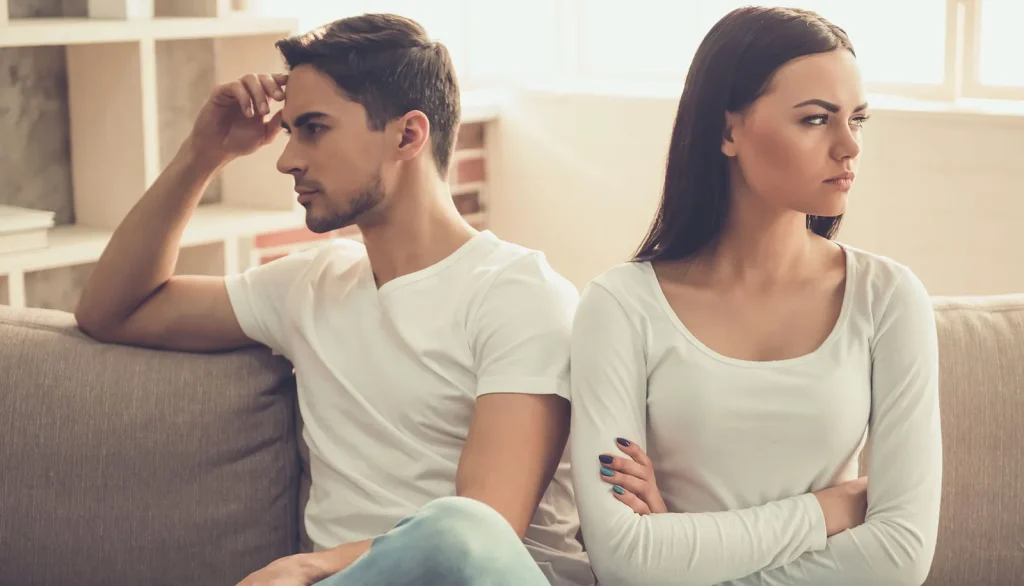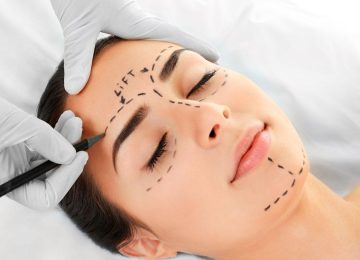Many ask themselves: why do some people have more sexual desire than others? The answer, simply put, is because some are usually more aroused than others. We are all born with a high, medium or low dose of that powerful energy that we should not only take advantage of to have sex, but to do everything we set out to do in life.
That is the sexual libido, which is defined by experts as a person’s sexual drive or desire. Of course, it is related to many factors such as age, physical condition, mental condition and other external agents that could affect it.
The premise is that the younger the age, the higher the libido. Certain theories assure that in the 20’s it is at its peak and after years are added to the calendar, it goes into freefall. However, this is not usually the scenario, so we must be aware of all those changes that would prevent us from enjoying a full sexual well-being.
That is why, today, I will talk about some signs that could be extinguishing the flame of passion:
Excessive stress: stress is one of the evils of modern life. A stressed person is characterized by anxiety, nervousness and irritability, the perfect cocktail to affect sexual desire.
Solution: organize your work and start delegating, prioritize responsibilities and, most importantly, do not take work home, make it your safe zone where you can disconnect from the outside world and enjoy with that special person.
Balanced diet: say NO to a meager diet that leaves you without energy and NO to an excessive diet that leaves you heavy and full.
Solution: important, if you are going to get lunch and dine at night, this meal should be light to avoid stomach upset or sleepiness. Instead, in the morning, you can have sex fasting and then reward yourselves with a good breakfast to get your strength back.
According to experts from the University of Massachusetts, United States, a diet low in protein, vitamins and minerals decreases sexual desire because it reduces the production of testosterone and other hormones.
Depression: according to experts, some emotional disorders such as depression are the cause of an imbalance in the brain’s neurotransmitters, causing weakness, fatigue, low libido in women and difficulty in male erection.
Solution: consult your personal or specialized physician. It could be a temporary situation that could be remedied in a short time. Include in your daily life an exercise routine such as yoga, pilates or hypopressive exercises, which are excellent when it comes to improving the energy levels in people with depression.
Too much alcohol: alcohol is a double-edged sword because while it is true that it helps to relax and disinhibit, it could also produce in some people the opposite effect; they end up in bed, yes, but sleeping.
Solution: the idea of a romantic evening is precisely for you to enjoy yourselves, so it is not bad to have just a bottle of wine or some cocktails, something light, to get the action started.
Low self-esteem: if you do not feel happy with your physical appearance or with the image you are projecting, of course that your libido will be on the floor and it does not mean that a few extra pounds will prevent you from having sex, but most likely your mind will not allow you to feel sexy and desirable.
Solution: take action and start by changing eating habits with the help of a nutritionist, accompanied with exercise and, of course, a makeover will also teach you to love your new version.
Medications: some medications to lower blood pressure, tranquilizers, relaxants, antihistamines and some psychotherapeutic drugs (used for psychological treatments such as depression) can decrease libido and even some birth control pills also affect it.
Solution: consult your doctor immediately to find other alternatives that do not affect your sex life and, of course, your health.
Hormones: hormonal imbalances such as endocrine diseases (diabetes mellitus and thyroid problems) decrease sexual desire. It decreases during menopause as well due to low estrogen levels and poor lubrication that causes pain during intercourse. Also during pregnancy, postpartum and lactation, there are significant hormonal changes that can make libido disappear.
Solution: consult with your doctor whenever you notice any change to find an alternative formula to balance these hormones.
Monotony: routine can kill a couple’s libido and, although it is not an easy task, you must do whatever it takes so that the passing of the years does not cause damage to the relationship.
Solution: get out of the comfort zone (the bed, the room, the house), experiment other positions, other places, use sex toys, disguises, create spaces as a couple.
Emotional instability: frequent arguments with your partner provoke stress, tension, bad mood and many feelings that little by little destroy sexual desire.
Solution: seek professional help. A psychologist or a couple therapist is the first option for a neutral third party to help you resolve your conflict. It is also important to talk without arguing, to listen to each other to understand what is bothering you so much and to give in so that you can sort things out.
Too little sleep: physical exhaustion affects all aspects of life, including sexual relations. Insomnia is another enemy of the libido, because poor sleep leaves your body without energy and the tension produced by lack of sleep frequently manifests as insensitivity to pleasurable stimuli such as caresses.
Solution: lost sleep cannot be recovered, but it can be repaired, so try to sleep at least 6 hours of the recommended 8 in the week and so, little by little, sexual desire will return.
Not desiring your partner does not mean that you do not love them, or that you are not attracted to or satisfied by them, it only means that you are being affected by the distant and sporadic experience that sex has turned into. It is anything but positive for your relationship.
There is no frequency for having sex, because each couple has their own rhythm (work, children, age, etc.) but the less sex or moments of intimacy you have, I must tell you that you will end up being just a couple of good friends.
Traducción del español: Catalina Oviedo Brugés
















